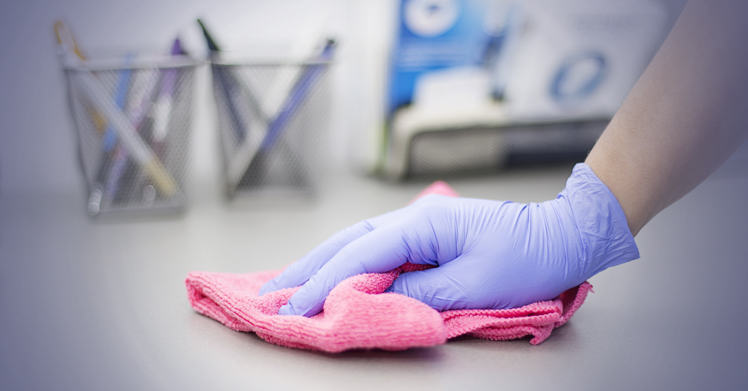Pat Langley, Chief Executive Officer of Apolline, shares some tips and advice on some small changes you can make to your daily processes that will make a big difference to your compliance.
We know that CQC inspectors place considerable emphasis on the overall cleanliness, organisation and appearance of your practice during a CQC inspection. In our experience, some practices overlook their cleaner as being part of the ‘team’. With this in mind I am going to share some tips when considering your cleaner’s role in compliance and some thoughts from our experiences of working with hundreds of practices.
Your cleaner
Some practices ‘employ’ a cleaner and some use contract cleaners. Those that ‘employ’ a cleaner either have one who is self-employed (this is the common approach) or they are actually an employee.
Whether your cleaner is employed by your practice or works as a self-employed contractor, you should ensure that you have the correct information about them that is stored securely and complies with the Data Protection Act 2018 and GDPR. Employed and self-employed cleaners should have the following information about them stored securely:
- Proof of identity including a recent photograph
- Evidence that they are legally entitled to work in the UK
- Satisfactory references
- A curriculum vitae
- An appropriate DBS or a risk assessment
- Terms and conditions of their employment or their self-employed role
- Job description
- Evidence of appropriate induction and ongoing training
- A signed confidentiality agreement
- Evidence of Hepatitis B status.
If you use contract cleaners, you should ensure that you have written assurances from the cleaning company that they have carried out all the necessary checks.
Environmental cleaning policy and procedures
HTM 01-05 states that all dental practices should have local policies and procedures for environmental cleaning and maintenance. This should include, at a minimum, the methods used, the frequency of each procedure and appropriate record-keeping practices.
HTM 01-05 also states that those undertaking general cleaning tasks should be fully trained in their duties. Cleaning staff should also be briefed on the special measures to be observed in cleaning of patient care areas or room(s) used for decontamination. In some instances, full training of personnel will be needed.
To do:
- Check all relevant HR documentation
- Undertake an annual appraisal and identify training needs if your cleaner is employed
- Think about inviting your cleaner to team meetings
- Check your environmental cleaning policy is relevant and up-to-date
- Check that you have appropriate cleaning logs that are being completed
- Check that cleaning schedules are being adhered to
- Check your COSHH records to ensure that all hazardous cleaning materials have had a COSHH assessment
- Check that your cleaning equipment complies with NPSA guidelines and that all equipment is correctly stored away from the clinical areas
- If you use a contract cleaner, ensure you have scheduled review meetings and ensure that actions agreed are followed up.
Dental surgeries
When you spend all day, every day in your surgery it can be difficult to see it as your patients see it. In effect we go ‘blind’ to what is around us because we are so used to seeing it all the time. Your patients may only see it once a year though!
Some tips for creating a calming surgery environment
- Get rid of clutter! It’s easy to allow books, magazines, study models, materials, equipment, pens, post-it notes, etc. to accumulate on the work surface in your surgery and then after a while you don’t even see it anymore
- Make sure your surgery is spotlessly clean
- Remove or replace worn posters
- Ensure everything you display is either framed or laminated
- Do not store personal items ‘on view’ in the surgery
- Make your surgery as welcoming as possible – is there somewhere for someone accompanying the patient to sit? Is there somewhere for patients to hang their coat or jacket?
For more business tips, advice and guidance on how to run your dental practice, read more of our practice management blogs. You can also contact Apolline by calling 0800 1931033.
